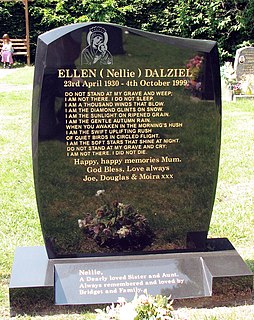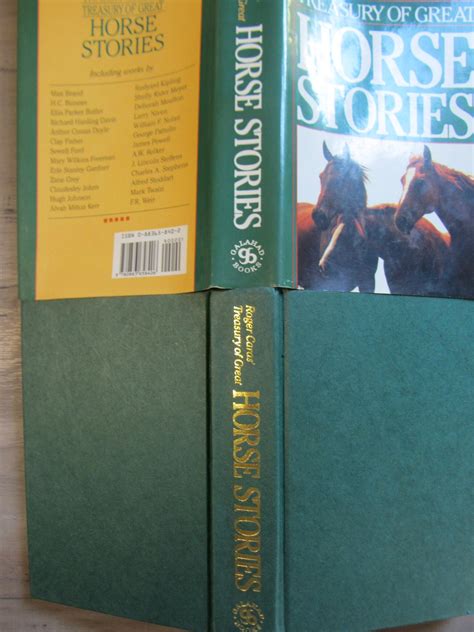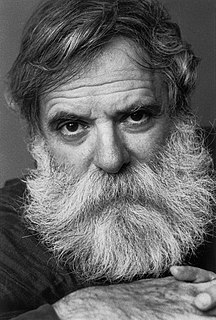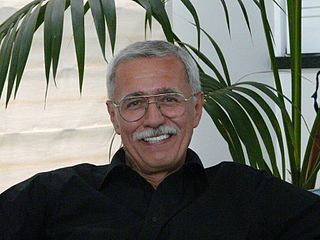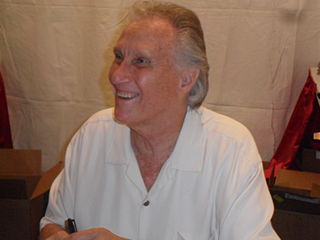Top 728 Grain Quotes & Sayings - Page 12
Explore popular Grain quotes.
Last updated on April 21, 2025.
Evidence indicates that cats were first tamed in Egypt. The Egyptians stored grain, which attracted rodents, which attracted cats. (No evidence that such a thing happened with the Mayans, though a number of wild cats are native to the area.) I don't think this is accurate. It is certainly not the whole story. Cats didn't start as mousers. Weasels and snakes and dogs are more efficient as rodent-control agents. I postulate that cats started as psychic companions, as Familiars, and have never deviated from this function.
Fun is at the core of the way I like to do business and it has been key to everything I've done from the outset. More than any other element, fun is the secret of Virgin's success. I am aware that the ideas of business as being fun and creative goes right against the grain of convention, and it's certainly not how the they teach it at some of those business schools, where business means hard grind and lots of 'discounted cash flows' and net' present values'.
Trials make more room for consolation. There is nothing that makes a man have a big heart like a great trial. I always find that little, miserable people, whose hearts are about the size of a grain of mustard seed, never have had much to try them. I have found that those people who have no sympathy for their fellows — who never weep for the sorrows of others — very seldom have had any woes of their own. Great hearts can only be made by great troubles.
I suppose it is submerged realities that give to dreams their curious air of hyper-reality. But perhaps there is something else as well, something nebulous, gauze-like, through which everything one sees in a dream seems, paradoxically, much clearer. A pond becomes a lake, a breeze becomes a storm, a handful of dust is a desert, a grain of sulphur in the blood is a volcanic inferno. What manner of theater is it, in which we are at once playwright, actor, stage manager, scene painter and audience?
Now, part of the problem with the climate debate is that so much gas board language like that [the IPCC's language] has been used and there's been too little plain, scientific, and economic thinking. And so, the entire political class has been captured by an idea, which as always with the best bad ideas has a grain of truth in it, which is then exaggerated beyond all reason. This has happened before - one thinks of the Dreyfus case, for instance.
The mode of clearing and planting is to fell the trees, and burn once what will burn, then cut them up into suitable lengths, rollinto heaps, and burn again; then, with a hoe, plant potatoes where you can come at the ground between the stumps and charred logs; for a first crop the ashes suffice for manure, and no hoeing being necessary the first year. In the fall, cut, roll, and burn again, and so on, till the land is cleared; and soon it is ready for grain, and to be laid down.
And human instinct is ancient and reliable, utterly mysterious and possibly capable of great genius. I believe that refined, fluent instincts are a person's most valuable asset. My own instincts have repeatedly guided me against the grain of logic and probability. When I have trusted and followed their direction, they have never been wrong. I don't know how or why. But I know that every significant experience-positive or negative-sharpens them and makes them more accurate.
The 31th of May, I perceived in the same water more of those Animals, as also some that were somewhat bigger. And I imagine, that [ten hundred thousand] of these little Creatures do not equal an ordinary grain of Sand in bigness: And comparing them with a Cheese-mite (which may be seen to move with the naked eye) I make the proportion of one of these small Water-creatures to a Cheese-mite, to be like that of a Bee to a Horse: For, the circumference of one of these little Animals in water, is not so big as the thickness of a hair in a Cheese-mite.
it's so easy to get lost inside a problem that seems so big at the time it's like a river a that's so wide it swallows you whole while your sittin round thinkin 'bout what you can't change and worrying about all the wrong things times flying by moving so fast you better use it all cause you can't get it back sometimes that mountain you've been climbing is just a grain of sand and what you've been out there searching for forever is in your hands ooooo when you figure out love is all that matters after all it sure makes everything else seem so small.
Do Not Stand at My Grave and Weep
Do not stand at my grave and weep,
I am not there, I do not sleep.
I am in a thousand winds that blow,
I am the softly falling snow.
I am the gentle showers of rain,
I am the fields of ripening grain.
I am in the morning hush,
I am in the graceful rush
Of beautiful birds in circling flight,
I am the star shine of the night.
I am in the flowers that bloom,
I am in a quiet room.
I am in the birds that sing,
I am in each lovely thing.
Do not stand at my grave and cry,
I am not there. I do not die.
The torments of hell abide for ever.... If all the earth and sea were sand, and every thousandth year a bird should come, and take away one grain of this sand, it would be a long time ere that vast heap of sand were emptied; yet, if after all that time the damned may come out of hell, there were some hope; but this word EVER breaks the heart.
We are all pirates at heart. There is not one of us who hasn't had a little larceny in his soul. And which one of us wouldn't soar if God had thought there was merit in the idea? So, when we see one of those great widespread pirates soaring across the grain of sea winds we thrill, and we long, and, if we are honest, we curse that we must be men every day. Why not one day a bird! There's an idea, now, one day out of seven a pirate in the sky. What puny power a man can attain by comparison. Compare a 747 with a bird and blush!
There must be a union between the spirit in wood and the spirit in man. The grain of the wood must relate closely to its function. The abutment of the edge of one board to an adjoining board can mean the success or failure of a piece. () Gradually a form evolves, much as nature produces the tree in the first place. The object created can live forever. The tree lives on in its new form. The object cannot follow a transitory “style”, here for a moment, discarded the next. Its appeal must be universal. Cordial and receptive, it should invite a meeting with man
But oh! the blessing it is to have a friend to whom one can speak fearlessly on any subject; with whom one's deepest as well as one's most foolish thoughts come out simply and safely. Oh, the comfort - the inexpressible comfort of feeling safe with a person - having neither to weigh thoughts nor measure words, but pouring them all right out, just as they are, chaff and grain together; certain that a faithful hand will take and sift them, keep what is worth keeping, and then with the breath of kindness blow the rest away.
Prosperity, pleasure and success, may be rough of grain and common in fibre, but sorrow is the most sensitive of all created things. There is nothing that stirs in the whole world of thought to which sorrow does not vibrate in terrible and exquisite pulsation. The thin beaten-out leaf of tremulous gold that chronicles the direction of forces the eye cannot see is in comparison coarse. It is a wound that bleeds when any hand but that of love touches it, and even then must bleed again, though not in pain.
A person is alive only to the degree that he or she is aware. To make the most of life we must constantly strive to be aware of the importance of being aware. Be aware of your senses and use them: So often we are distracted and unconscious of the riches our senses can pour into our lives. We eat food without tasting it, listen to music without hearing it, smell without experiencing the pungency of odors and the delicacy of perfumes, touch without feeling the grain or texture, and see without appreciating the beauty around us.
In summer we live out of doors, and have only impulses and feelings, which are all for action, and must wait commonly for the stillness and longer nights of autumn and winter before any thought will subside; we are sensible that behind the rustling leaves, and the stacks of grain, and the bare clusters of the grape, there is the field of a wholly new life, which no man has lived; that even this earth was made for more mysterious and nobler inhabitants than men and women. In the hues of October sunsets, we see the portals to other mansions than those which we occupy.
?In life, at sometime or another we come to a point where all relationships cease—where there is only us and Allah. There are no parents, brother or sister, or any friend. Then we realise that there is no earth under us nor is there sky above, but only Allah who is supporting us in this emptiness. Then we realise our worth – it is not more than a grain of sand or the leaf of a plant. Then we realise our existence is only confined to our being. Our demise makes not a whit of difference to the world around us, nor to the scheme of things.
The Realization of the Nondual traditions is uncompromising: There is only Spirit, there is only God, there is only Emptiness in all its radiant wonder. All the good and all the evil, the very best and the very worst, the upright and the degenerate- each and all are radically perfect manifestations of Spirit precisely as they are. There is nothing but God, nothing but the Goddess, nothing but Spirit in all directions, and not a grain of sand, not a speck of dust, is more or less Spirit than any other.
Some things cannot be spoken or discovered until we have been stuck, incapacitated, or blown off course for a while. Plain sailing is pleasant, but you are not going to explore many unknown realms that way. We articulate the truth of a situation by carrying the whole experience in the voice and allowing the process to blossom of its own accord. Out of the cross-grain of experience appears a voice that not only sums up the process we have gone through, but allows the soul to recognize in its timbre, the color, texture, and complicated entanglements of being alive.
All of human history is about the going from sudden fat years to the sudden lean years. We've always had good times and bad, and we've had ways of managing the bad times. We have ways of insulating ourselves, making ourselves less sensitive for the bad times by having things like grain stores, for example. Pretty much every civilization that's lasted for any reasonable length of time has some food management principles behind it. But what's been happening over the past thirty years is it's failed - the insurance policy.
Many of our attempts to understand Christian faith have only cheapened it. I can no more understand the totality of God than the pancake I made for breakfast understands the complexity of me. The little we do understand, that grain of sand our minds are capable of grasping, those ideas such as God is good, God feels, God loves, God knows all, are enough to keep our hearts dwelling on His majesty and otherness forever.
Divine happiness, even the tiniest particle of a grain of it, never leaves one again; and when one attains to the essence of things and finds one's Self-this is supreme happiness. When it is found, nothing else remains to be found; the sense of want will not awaken anymore, and the heart's torment will be stilled forever. Do not be satisfied with fragmentary happiness, which is invariably interrupted by shocks and blows of fate; but become complete, and having attained to perfection, be YOURSELF.
As I drift back into sleep, I can't help thinking that it's a wonderful thing to be right about the world. To weigh the evidence, always incomplete, and correctly intuit the whole, to see the world in a grain of sand, to recognize its beauty, its simplicity, its truth. It's as close as we get to God in this life, and reside in the glow of such brief flashes of understanding, fully awake, sometimes for two or three seconds, at peace with our existence. And then back to sleep we go.
I want you to think of your life as an hourglass. You know there are thousands of grains of sand in the top of the hourglass; and they all pass slowly and evenly through the narrow neck in the middle. Nothing you or I could do would make more than one grain of sand pass through this narrow neck without impairing the hourglass. You and I and everyone else are like this hourglass.
You, methinks you think you love me well;
For me, I love you somewhat; rest: and Love
Should have some rest and pleasure in himself,
Not ever be too curious for a boon,
Too prurient for a proof against the grain
Of him ye say ye love: but Fame with men,
Being but ampler means to serve mankind,
Should have small rest or pleasure in herself,
But work as vassal to the larger love,
That dwarfs the petty love of one to one.
There is a perennial classical question that asks which part of the motorcycle, which grain of sand in which pile, is the Buddha. Obviously to ask that question is to look in the wrong direction, for the Buddha is everywhere. But just as obviously to ask the question is to look in the right direction, for the Buddha is everwhere.
I don't think the entertainment business in general will ever just be okay with how people are. I think we're in a business that critiques everything we do, and you kind of just take it with a grain of salt. I look at my grandmother, and I think she's aged beautifully, so I hope that I could be a smidgen of how she's aged. There's nothing you can do. All you can do is take of yourself and do the things that make you feel good and make you healthy and age appropriately, but there's always going to be people out there are going to say something, and there's nothing you can do about it.
The idea is that of the earth not only becoming covered with myriad grains of thought, but becoming enclosed in a single thinking envelope so as to form, functionally, no more than a single vast grain of thought on the sidereal scale, the plurality of individual reflections grouping themselves together and reinforcing one another in the act of a single unanimous reflection...A new domain of psychical expansion- that is what we lack. And it is staring us in the face if we would only raise our heads to look at it.
One summer day, while I was walking along the country road on the farm where I was born, a section of the stone wall opposite me, and not more than three or four yards distant, suddenly fell down. Amid the general stillness and immobility about me the effect was quite startling. ... It was the sudden summing up of half a century or more of atomic changes in the material of the wall. A grain or two of sand yielded to the pressure of long years, and gravity did the rest.
In a way, the world-view of the Party imposed itself most successfully on people incapable of understanding it. They could be made to accept the most flagrant violations of reality, because they never fully grasped the enormity of what was demanded of them, and were not sufficiently interested in public events to notice what was happening. By lack of understanding they remained sane. They simply swallowed everything, and what they swallowed did them no harm, because it left no residue behind, just as a grain of corn will pass undigested through the body of a bird.
I've noticed that as someone who has done music and creative things in Washington state and Portland, to kind of toot your own horn, or admit, "I'm going for it. I'm hustling," is not exactly the norm. Which is weird, because you go to New York, or LA, or anywhere else, you've got to be gunning for it - and you should be - you're part of a fast-moving stream of other people who are really ambitious. People move here to work less. So, to say that you're hustling all the time, and going for it, is kind of a little bit against the grain here.
I observed certain animalcules, within whole bodies I saw so quick a motion as to exceed belief; they were about the size of a large grain of sand, and their bodies being transparent, that the internal motion could plainly be seen. Among other things, I saw in the body of one of these animalcules a bright and round corpuscle, placed near the head, and in which a very wonderful swift motion was to be seen, consisting of an alternate extension and contraction. This particle I concluded to be the heart.
I understand, of course, that grain-fed meat is not the cause of the world hunger problem - and eating some of it doesn't directly take food out of the mouths of starving people - but it is, to me, a symbol and a symptom of the basic irrationality of a food system that's divorced from human needs. Therefore, using less meat can be an important way to take responsibility. Making conscious choices about what we eat, based on what the earth can sustain and what our bodies need, can help remind us that our whole society must begin to balance sustainable production with human need.
It is all a question of sensitiveness. Brute force and overbearing may make a terrific effect. But in the end, that which lives by delicate sensitiveness. If it were a question of brute force, not a single human baby would survive for a fortnight. It is the grass of the field, most frail of all things, that supports all life all the time. But for the green grass, no empire would rise, no man would eat bread: for grain is grass; and Hercules or Napoleon or Henry Ford would alike be denied existence.
Therefore, is thy brother a sinner? Then cover his sin and pray for him. Dost thou publish his sins, then truly thou art not a child of your merciful Father; for otherwise thou wouldst be also as he, merciful. It is certainly true that we cannot show as great mercy to our neighbor, as God has to us; but it is the true work of the devil that we do the very opposite of mercy, which is a sure sign that there is not a grain of mercy in us.
We disapprove of state education. Then the socialists say that we are opposed to any education. We object to a state religion. Then the socialists say that we want no religion at all. We object to a state-enforced equality. Then they say that we are against equality. And so on, and so on. It is as if the socialists were to accuse us of not wanting persons to eat because we do not want the state to raise grain.
Comrades! The kulak uprising in your five districts must be crushed without pity. You must make example of these people. (1) Hang (I mean hang publicly, so that people see it) at least 100 kulaks, rich bastards, and known bloodsuckers. (2) Publish their names. (3) Seize all their grain. (4) Single out the hostages per my instructions in yesterday's telegram. Do all this so that for miles around people see it all, understand it, tremble, and tell themselves that we are killing the bloodthirsty kulaks and that we will continue to do so ...Find tougher people.
A learned man is a sedentary, concentrated solitary enthusiast, who searches through books to discover some particular grain of truth upon which he has set his heart. If the passion for reading conquers him, his gains dwindle and vanish between his fingers. A reader, on the other hand, must check the desire for learning at the outset; if knowledge sticks to him well and good, but to go in pursuit of it, to read on a system, to become a specialist or an authority, is very apt to kill what suits us to consider the more humane passion for pure and disinterested reading.
I have divers times examined the same matter (human semen) from a healthy man... not from a sick man... nor spoiled by keeping... for a long time and not liquefied after the lapse of some time... but immediately after ejaculation before six beats of the pulse had intervened; and I have seen so great a number of living animalcules... in it, that sometimes more than a thousand were moving about in an amount of material the size of a grain of sand... I saw this vast number of animalcules not all through the semen, but only in the liquid matter adhering to the thicker part.
History, the winnowing wind, never halts. We see the chaff rise, forget the waiting grain, seed of the future, fallen to the threshing floor. We never learn, but live on, slit-narrow, as if our living were a pencil line traced upon paper, behaving as trapped denizens of a flat world hemmed in by the bigoted horizon of our own making. Yet the meaning of living is a pushing back, a pulling down of the great walls and domes of fear and ignorance, is relinquishing the nest for the sky, ignorance for understanding. The look back is also a look forward.
When people say "How do you write a book, how does it all happen?" I say, you line things up, and you line them up as actually as you possibly can, but sooner or later the book has got momentum and it's moving along under that momentum. It's like a sculpture, if you're working with the grain of the wood, the wood will start defining what shape it's going to become.
In 1966, while working on a feature about a Picasso exhibition at the Tel Aviv Museum of Art, I recorded the pre-opening preparations and observed a moment: One of the cleaners stopped, puzzled, in front of the Picassos. I think that this is an image that can be universally understood, but with a grain of salt. I never chose this image in edits before because it seemed to me that it felt posed-the composition was a little too perfect. But, believe me, it was a lucky moment.
If Kubrick had lived to see the opening of his final film, he obviously would have been disappointed by the hostile reactions. But I'm sure that in the end he would have taken it with a grain of salt and moved on. That's the lot of all true visionaries, who don't see the use of working in the same vein as everyone else. Artists like Kubrick have minds expansive and dynamic enough to picture the world in motion, to comprehend not just where its been, but where it's going.
There is a particular kind of pain, elation, loneliness, and terror involved in this kind of madness. When you're high it's tremendous. The ideas and feelings are fast and frequent like shooting stars....But, somewhere, this changes. The fast ideas are far too fast, and there are far too many; overwhelming confusion replaces clarity. Everything previously moving with the grain is now against-you are irritable, angry, frightened, uncontrollable....It will never end, for madness carves its own reality.
It were good to know how much hay an acre of every sort will bear; how many cattle the same weight of each sort of hay will feed and fatten; what quantity of grain and other commodities the same acre will bear in one, three or seven years; unto what use each soil is proper; all which particulars I call intrinsic value, for there is also another value merely accidental or extrinsic.
A prisoner lived in solitary confinement for years. He saw and spoke to no one and his meals were served through an opening in the wall. One day an ant came into his cell. The man contemplated it in fascination as it crawled around the room. He held it in the palm of his hand the better to observe it, gave it a grain or two, and kept it under his tin cup at night. One day it suddenly struck him that it had taken him ten long years of solitary confinement to open his eyes to the loveliness of an ant.
The worldly wisdom of the foolish man Is like a sieve, that does alone retain The grosser substance of the worthless bran: But thou, my soul, let thy brave thoughts disdain So coarse a purchase: O be thou a fan To purge the chaff, and keep the winnow'd grain: Make clean thy thoughts, and dress thy mixt desires: Thou art Heav'n's tasker, and thy God requires The purest of thy flow'r, as well as of thy fires.
Why are the people starving?-
Because their grain is being eaten up by the taxes
That's why they're starving
Why are people rebellious?-
Because those above them meddle in their lives
That's why they're rebellious
Why do people regard death so lightly?-
Because they are so involved with their own living
That's why they regard death so lightly
In the end,
The treasure of life is missed by those who hold on
and gained by those who let go
Create all the happiness you are able to create: remove all the misery you are able to remove. Every day will allow you to add something to the pleasure of others, or to diminish something of their pains. And for every grain of enjoyment you sow in the bosom of another, you shall find a harvest in your own bosom; while every sorrow which you pluck out from the thoughts and feelings of a fellow creature shall be replaced by beautiful peace and joy in the sanctuary of your soul.
The idea that a relatively fixed group of privileged people might shape the economy and government for their own benefit goes against the American grain. Nevertheless, the owners and top-level managers in large income-producing properties are far and away the dominant power figures in the United States. Their corporations, banks, and agribusinesses come together as a corporate community that dominates the federal government in Washington. Their real estate, construction, and land development companies form growth coalitions that dominate most local governments.
The noise you hear after people see something you do - whether it's a TV show or a movie - that always makes you see that thing slightly differently. Without question. The ability of a television series to make adjustments is something you've got to take advantage of. And test-screening a movie can be helpful too. But the part that can be dangerous is when you take those notes as gospel, instead of taking them with a grain of salt. The key is to use the response as one of the tools in your box, as opposed to using it to determine what you do.
Graciousness, courtesy, compassion-this is hesed. Hesed is a quality that extends even to the animals and the land. The sabbath rest principle of Hebrew law included the needs of the livestock (Exod. 23:12). After seven years of planting and harvesting, the land itself needed "a year of complete rest" (Lev. 25:5). Even the soil of the vineyards was not to be overtaxed by planting other crops between the rows (Deut. 22:9). The oxen that trod out the grain were not to be muzzled so that they could eat while they worked (Deut. 25:4). And so on.
When I travel around the world, I see that poor countries sell their grain to the West while their own children starve in their arms. And we feed it to livestock. So we can eat a steak? Am I the only one who sees this as a crime? Every morsel of meat we eat is slapping the tear-stained face of a starving child. When I look into her eyes, should I be silent? The Earth can produce enough for everyone’s need. But not enough for everyone’s greed.
Mankind . . . possesses two supreme blessings. First of these is the goddess Demeter, or Earth whichever name you choose to call her by. It was she who gave to man his nourishment of grain. But after her there came the son of Semele, who matched her present by inventing liquid wine as his gift to man. For filled with that good gift, suffering mankind forgets its grief; from it comes sleep; with it oblivion of the troubles of the day. There is no other medicine for misery.
The slave labors, but with no cheer - it is not the road to respectability, it will honor him with no citizens' trust, it brings no bread to his family, no grain to his garner, no leisure in after-days, no books or papers to his children. It opens no school-house door, builds no church, rears for him no factory, lays no keel, fills no bank, earns no acres. With sweat and toil and ignorance he consumes his life, to pour the earnings into channels from which he does no drink, into hands that never honor him. But perpetually rob and often torment.










